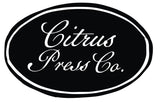Wording for Wedding Invitations
10 Tips for Formal Wedding Invitation Wording
Honor vs. honour? Whose name goes first? Where are the commas and periods? These are just a few of the questions you might have while personalizing and ordering your wedding invitations. We've compiled the top ones that we often get asked questions about. We’re here to help you with the ins and outs of formal wedding invitation wording that you should know before you start your invitation process.
1| When in doubt - Spell it out
On a formal wedding invitation, almost every word on your wedding invitation should be spelled out. Titles like 'Mr.' and 'Mrs.' can be used, but you must spell out the wedding date, time and year. Also spell out words appearing in the venue’s address, like Court, Avenue and Street. House numbers and apartment numbers can remain as numbers - not spelled out. Do not include zip codes/ postal codes on a formal invitation.
2 | Where's all the punctuation?
Line breaks act as commas and periods in wedding invitation wording. You may use periods in titles like Mr. and Mrs. You may use commas if separating information in the middle of a line. Otherwise, they aren’t needed and do not belong on wedding stationery.
3 | When are last names needed?
A last name isn’t needed for the bride or groom if their parents’ names are included on the invitation. It’s redundant. For example, if Sara Louis’s parents were the hosts of the wedding, the wedding invitation would read…
Mr. and Mrs. James Haggerty
invite you to the marriage of their daughter
Sara Louise
to
Lewis David Gray
If the groom’s parents were also mentioned, the groom’s last name would be omitted as it would be associated with the parent's last names which is placed under the groom's name.
4 | Which name comes first?
Wedding invitation etiquette indicates the bride’s name comes first.
5 | How to indicate divorced parents on an invitation
If married parents are hosting, the names of couples are on the same line. The names of divorced couples are on separate lines.
6 | Capitalization
Do not capitalize the first word of each line. Only capitalize the first word of the invitation and all proper nouns. Capitalize any line that stands on its own if it would be the start of a new sentence.
7 | Which to use “The honor of your presence…” or “The pleasure of your company…”?
“The honor of your presence” indicates the wedding is in a place of worship. “The pleasure of your company” indicates the wedding is taking place at a non-religious venue.
8 | Is it Honor or Honour?
The “ou” has become a personal style preference. “Honour” and “favour” are the British spellings of “honor” and “favor.” Some feel the British spellings are more formal and dignified. However, the choice is yours. Just be sure to stay consistent throughout the entire wedding invitation suite.

9 | Reception to follow?
Use 'Reception to follow/ Dinner to follow/ Dinner and Dancing to follow' etc, when the ceremony and reception are at the same location. Otherwise do not include the line and include a separate card to indicate reception location, address, time and any other information that you need to let your guest's know about your reception details.
10 | Does “and” belong in the year?
Technically, no. The word “and” in numbers actually represents a decimal point. However, “two thousand and eighteen” has become incredibly common and is typically done in Britain. Depends on how formal you'd like to be.
There are a lot of rules when it comes to formal wedding invitation wording. Try not to worry too much though because most guests will never notice if you don’t follow ALL “the rules.” Once you submit your invitation wording, your stationery designer should be able to spot any inconsistencies and let you know that they've updated them for you.



